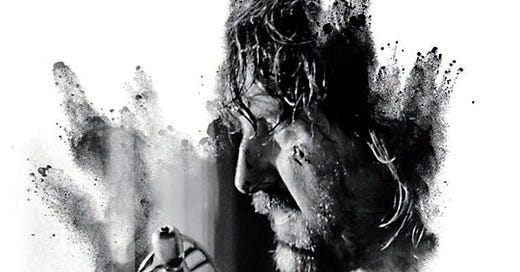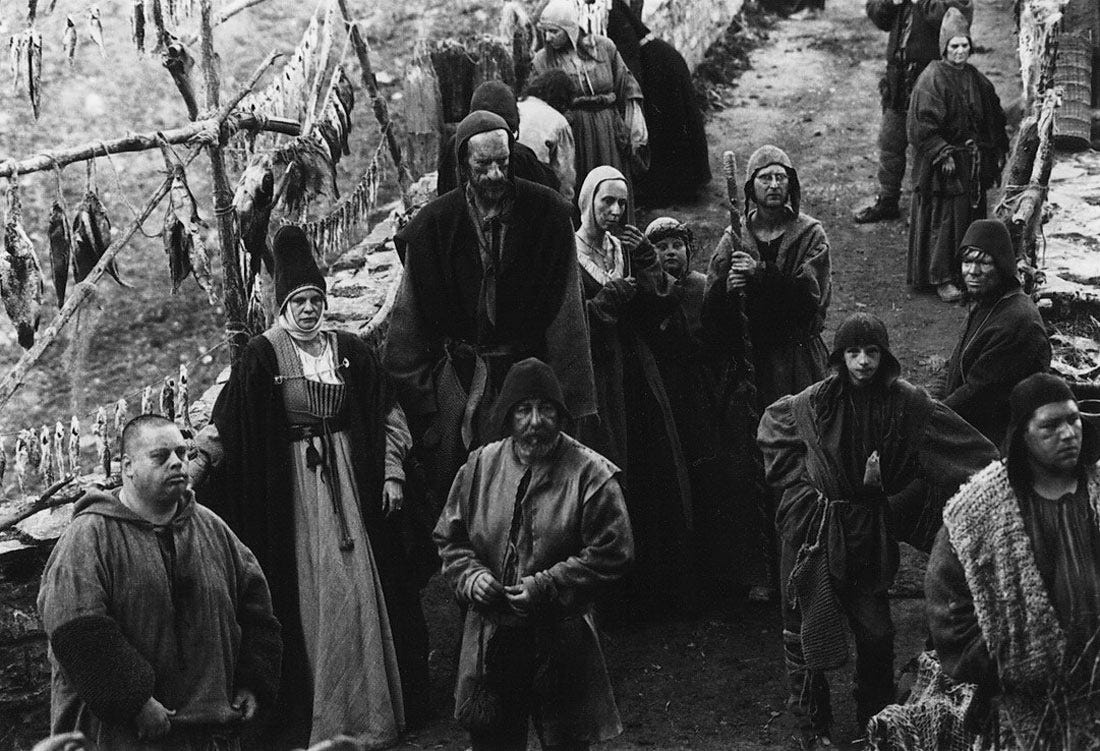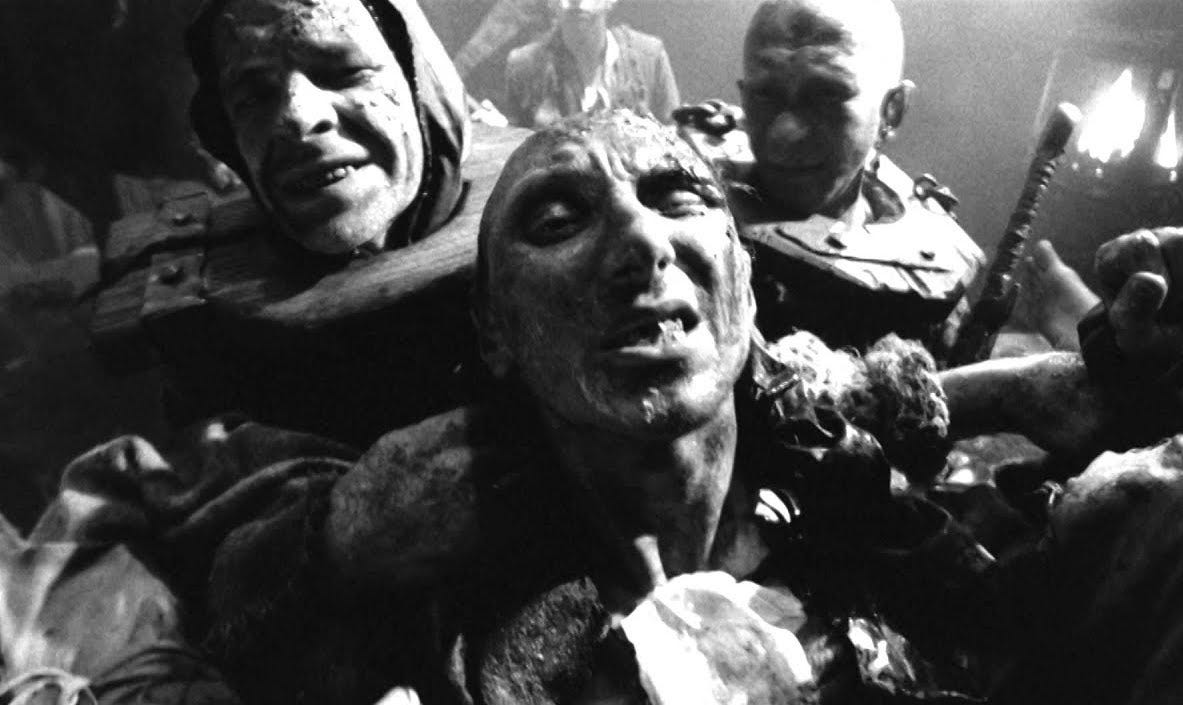Directed by Aleksei German
2013, Russia
Well, here at ReidsonFilm we are used to sitting through three-hour-long Russian films in black-and-white but nothing could have prepared us for this particular three-hour-long Russian film in black-and-white. Hard to Be a God is certainly an epic: six years in the making, and the director Aleksei German died in 2013 leaving it unfinished. It was completed by his son Aleksei German Jr. and his wife, Svetlana Karmalita, who was also the co-author of the screenplay that was adapted from the 1964 novel of the same name by Arkady and Boris Strugatsky.
I think we were all agreed that this was a film like nothing else we have ever seen: a work of science fiction set in a medieval age. And the plot? Well, there is a brief exposition at the start, but then you really are left to fend for yourself. A scientific expedition was sent from Earth to a city, Arkanar, on another planet, where the March of History has come to a sudden halt. There is no flowering of the Renaissance here, the planet’s inhabitants are stuck in a particularly depraved and violent version of the Middle Ages.
The story begins with us finding one of the scientists (we see little of the others) playing the role of a kind of observational overlord who goes by the name of Don Rumata (Leonid Yarmolnik). Like a United Nations peacekeeper, he is forbidden to interfere in the world he has been sent to study, but unlike those peacekeepers he appears to be invulnerable. Many of the citizens of Arkanar view him as a descendent of the Gods. He has never killed a man, despite fighting 186 duels. But he has cut off 372 ears…
Arkanar’s society is divided into two perpetually warring factions: the Greys and the Blacks. The cause of the conflict remains unexplained, but at the same time there is a pogrom against intellectuals that has a marked resemblance to Mao’s Cultural Revolution or the genocidal killings of Cambodia’s Khmer Rouge, where wearing a pair of spectacles was enough to put you on the death list.
This melee of soldiers, peasants, and prisoners inhabits a realm of muck, squalor, mutilated bodies, and festering corpses. At the start we witness an unfortunate man being drowned in an overflowing, outdoor latrine. Later on, we get to see a dead body strung up on what could be a washing line, with its intestines spilling out. And between these two shots? Much more of the same.
I can only imagine that this would have been the result if Hieronymus Bosch had been given a movie camera: a noisome pageant of the grotesque. While we at ReidsonFilm agreed that Hard to Be a God was a striking and vivid experience there was a marked split in our take: visionary masterpiece or interminable quixotic folly? This was in part due to the 177-minute running time during which there is little narrative development or resolution. We are literally trailing Don Rumata as he staggers between the decay and the disembowelled in relentless, torrential rainfall. Apparently intoxicated from dawn to dusk, he imbibes a seemingly noxious liquor from a goblet. Is this film German’s hard-bitten and fatalistic view of civilisations’ doomed attempts at ‘progress’, or simply a mudpunk barbarous satire?
The film wouldn’t work if it was shorter…it wouldn’t feel as claustrophobic, or meandering, or make you feel like you’re trapped in that world with Don Rumata – C
The cinematography is masterly though, the high contrast black-and-white shines through a screen smeared with blood and excrement, rendering a chiaroscuro that draws the viewer into a world of Purgatory. Malformed and disfigured bodies crowd the frame, almost toppling out of it and the characters constantly break the fourth wall, staring quizzically at the camera. Reminiscent of those colourized black-and-white pieces of documentary footage from the early 20th century, they appear fascinated by it: a transcendental technology has landed in their midst. Don Rumata plays atonal jazz on a flute, one of the few explicit clues that there really is an advanced future out there in the universe.
So, Hard to Be a God… a scatological, immersive art experience. Unquestionably cinematic, but poking pins in the naked buttocks of a tortured peasant may not be everybody’s idea of aesthetic accomplishment.
Creator, if you exist, blow us away. Blow us away like dust or pus. Or leave us in our rot. Destroy us all…
Reids’ Results (out of 100)
C - 84
T - 71
N - 85
S - 72
Thank you for reading Reids on Film. If you enjoyed our review please share with a friend and do leave a comment.
Coming next… Marat/Sade(1967)








